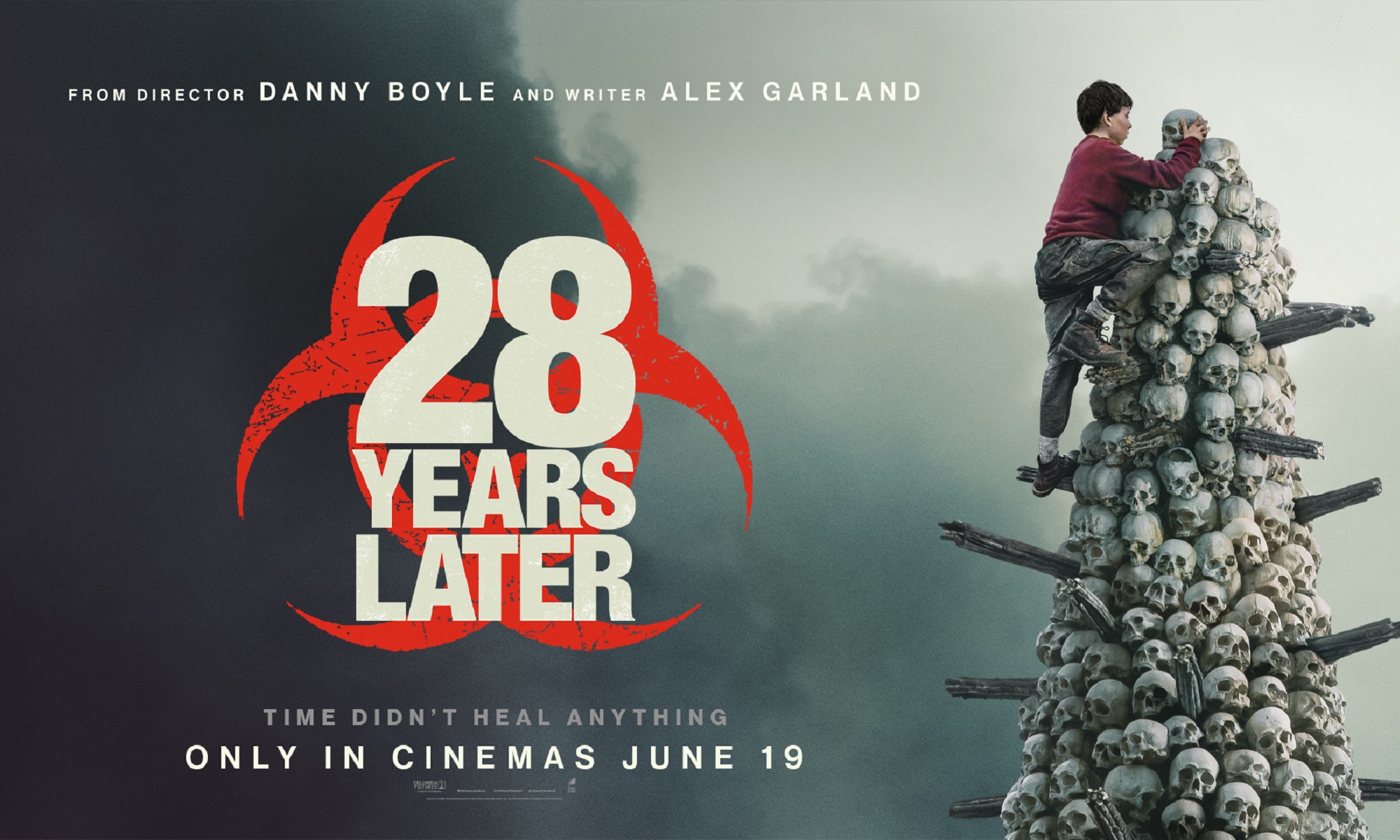Danny Boyle, you beautiful chaotic genius. Twenty-eight years after 28 Days Later redefined the zombie genre (sorry, infected), he’s back with a legacy sequel that somehow delivers jump scares, existential grief, political commentary, and Jodie Comer Irish dancing, all without breaking a sweat. I genuinely enjoyed every minute of this film, and my blood pressure may never fully recover.
From the first frame, 28 Years Later announces itself as something different. The world is broken but not quite collapsed, and the rage virus is no longer the central mystery, it’s the backdrop to a story about memory, growing up too soon, and trying to keep your soul intact when everything else has rotted. Boyle weaves in documentary footage, night vision chaos, Brexit, and even Olivier’s Henry V to build a version of Britain that feels just as haunted by history as it is by its monsters.
Aaron Taylor-Johnson brings an earthy rage, Ralph Fiennes is predictably magnetic, and Allie Williams is a revelation. But it’s Jodie Comer who carries the film’s soul in her pocket, delivering a performance that’s funny, furious, and deeply human.
Yes, some characters make absurdly rash decisions, but hey, people in horror movies always do. What 28 Years Later offers in return is a staggering sound design, and some of the most inventive and manic direction since Boyle's early work. The film is both raw and elegant, like a punk band covering a classical symphony. The real miracle is how Boyle and Garland turn that chaos into something profound.
Somewhere around the midpoint, it shifts into a whole different beast, one that asks you to contemplate death, not just dodge it. It's weird, risky, and oddly comforting. By the time the bonkers finale rolled around, I was equal parts heartbroken and exhilarated. Visceral, strange, and unexpectedly beautiful, 28 Years Later is a worthy follow-up to a modern classic and one of the most creative horror films in years.
Long live punk cinema. Long live rage.
Bring on The Bone Temple.

Comments